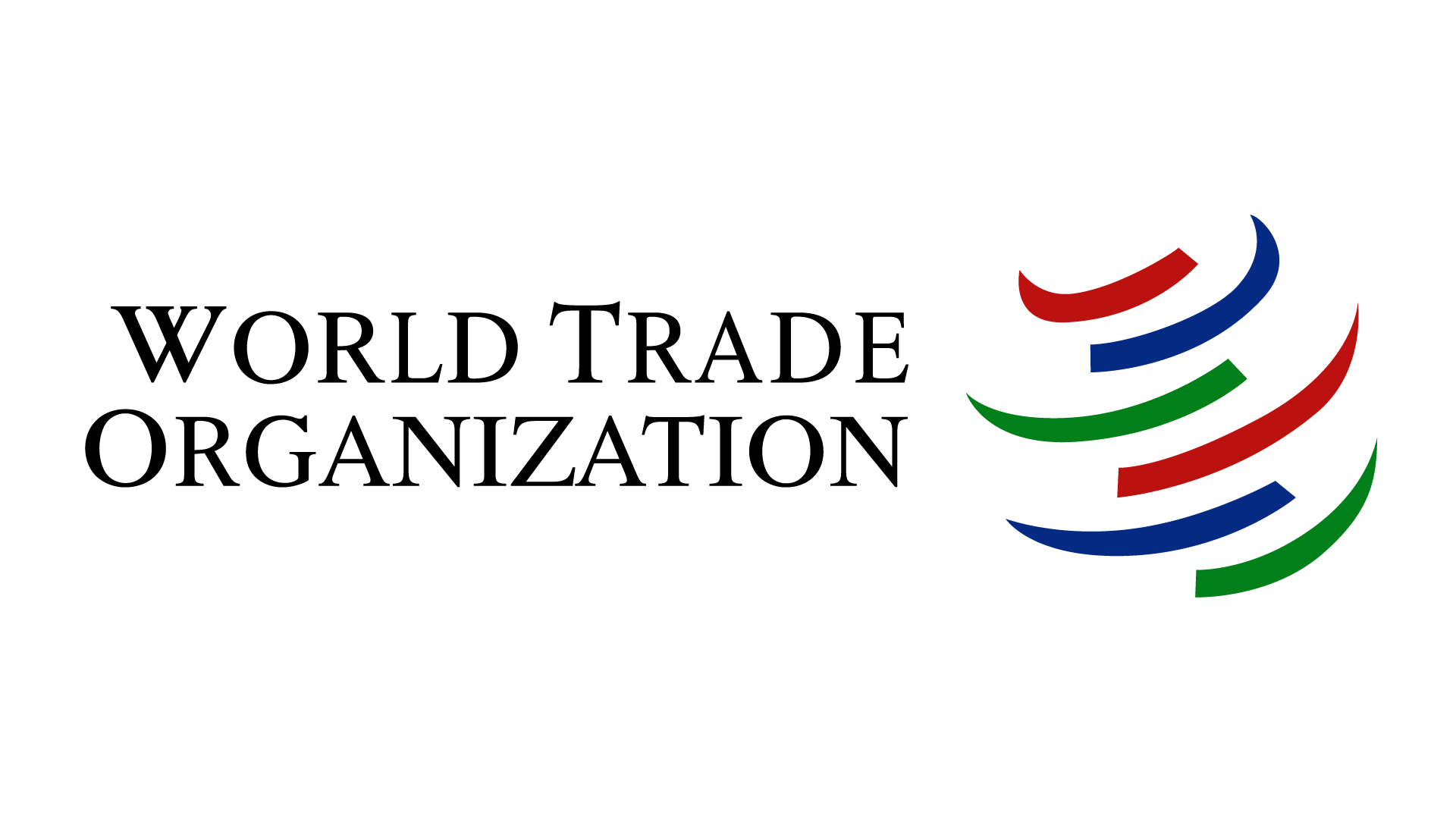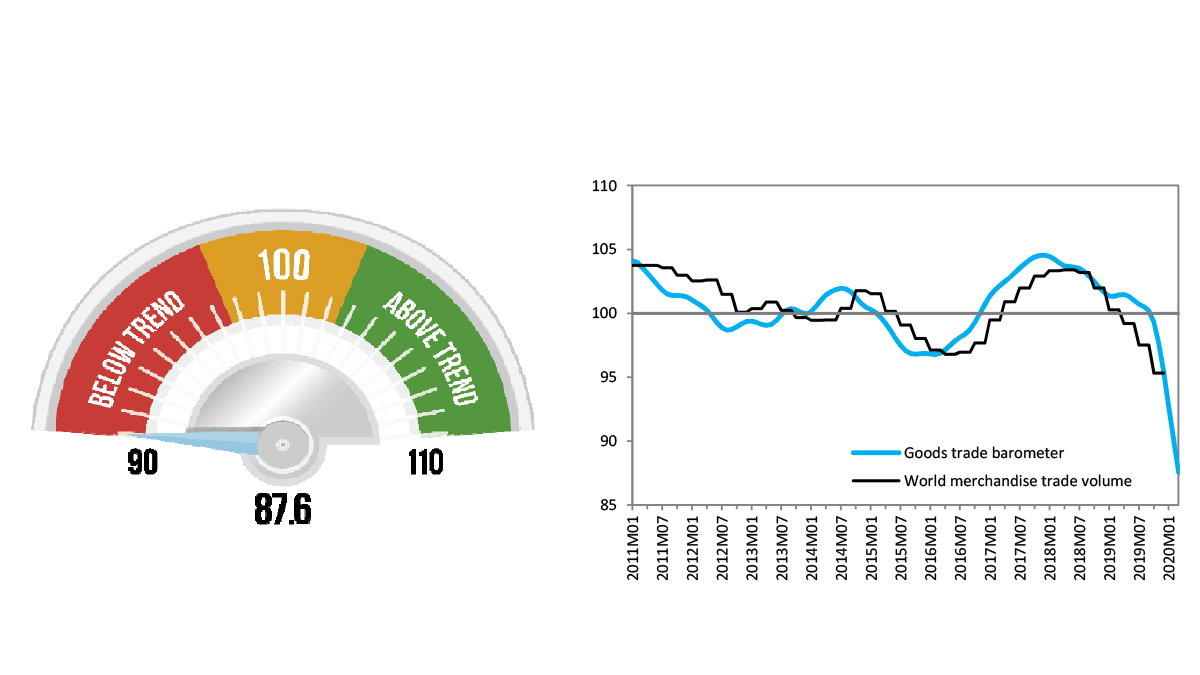WTO goods barometer flashes red as COVID-19 disrupts world trade

The volume of world merchandise trade is likely to fall precipitously in the first half of 2020 as the COVID-19 pandemic disrupts the global economy, according to the WTO Goods Trade Barometer released on 20 May. The index currently stands at 87.6, far below the baseline value of 100, suggesting a sharp contraction in world trade extending into the second quarter. This is the lowest value on record since the indicator was launched in July 2016.

The Goods Trade Barometer provides real-time information on the trajectory of world merchandise trade relative to recent trends. The current reading captures the initial phases of the COVID-19 outbreak, and shows no sign of the trade decline bottoming out yet. This measure is consistent with the WTO's trade forecast issued on 8 April 2020, which estimated that world merchandise trade could decline by between 13% and 32% in 2020, depending on the duration of the pandemic and the effectiveness of policy responses.
All of the barometer's component indices are currently well below trend. The automotive products index (79.7) was weakest of all, due to collapsing car production and sales in major economies. The sharp decline in the forward-looking export orders index (83.3) suggests that trade weakness will persist in the short-run. Declines in the container shipping (88.5) and air freight (88.0) indices reflect weak demand for traded goods as well as supply-side constraints arising from efforts to suppress COVID-19. Only the indices for electronic components (94.0) and agricultural raw materials (95.7) show signs of stability, although they too remain below trend.
Trade had already been slowing in 2019 before the pandemic, weighed down by persistent trade tensions and weakening economic growth. WTO trade statistics show that the volume of world merchandise trade shrank by 0.1% in 2019, marking the first annual decline since 2009, during the global financial crisis. Trade was relatively weak in the final quarter of 2019, but this is unlikely to have been influenced by COVID-19, which was first detected very late in the year.
Like its counterpart for services, the Goods Trade Barometer aims to gauge momentum and identify turning points in global trade growth. As such, it complements trade statistics and forecasts from the WTO and other organizations. Readings of 100 indicate growth in line with medium-term trends; readings greater than 100 suggest above-trend growth, while those below 100 indicate below-trend growth.

